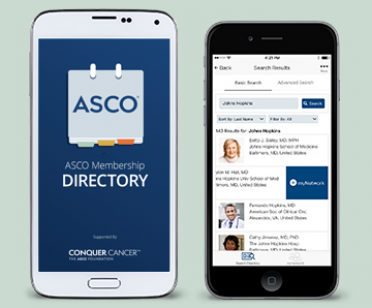Title
Targeted Agent & Profiling Utilization Registry (TAPUR) Study
To see a list of study cohorts (defined by genomic alteration, tumor type, and treatment option) currently available for enrollment on TAPUR, please click here. Note: For the most recent report, please refresh your browser window.
The TAPUR team will share a subset of study data through the ASCO Data Library in 2024. Visit the website to learn more and express interest.
About the TAPUR Study
In oncology, it’s becoming more common to conduct tumor genomic profiling—particularly for patients who have advanced cancer or patients who have exhausted all standard treatment options—to determine whether the results might suggest a previously unrecognized therapy option. Although not always the case, it may be reasonable to expect that a targeted agent that is effective in patients selected according to a biomarker (i.e., genomic alteration) in one type of cancer may be effective for patients with another type of cancer that harbors the same genomic alteration. Thus, genomic profiling might reveal therapy options for patients such as treatment with an investigational agent in a clinical trial or use of a targeted therapy drug that has been approved by FDA for a different cancer.
However, it’s often difficult for patients to get access to and reimbursement for anti-cancer agents used off-label. And, even if an oncologist can get access to a drug and treat the patient, the larger medical community has no way to learn whether that particular drug worked in that patient with those particular characteristics. Current prescribing practices don’t capture the outcomes of patients who receive therapies off-label.
ASCO hopes to address both of these problems with the TAPUR study.
TAPUR aims to
-
Collect data on clinical outcomes to learn about new uses of these drugs outside of indications approved by the U.S. Food and Drug Administration
-
Learn from the real-world practice of prescribing targeted therapies to patients whose tumors harbor a genomic variant known to be a drug target
-
Educate oncologists about the implementation of precision medicine in clinical practice
-
Catalog the choice of genomic profiling test by clinical oncologists and learn about the utility of registry data to develop hypotheses for additional clinical trials
-
Learn about the use of registry data to generate hypotheses for additional clinical trials
Who Benefits
![]()
Participants: Access to targeted study drugs matched to the genomic profiles of their cancers
![]()
Physicians: Assistance interpreting genomic results and identifying potential treatment options
![]()
Cancer Community: New uses of targeted anticancer drugs for patients who have exhausted standard options
![]()
Drug Manufacturers: Insights on new uses of existing drugs
![]()
Regulatory Authorities: Insights about side effects and treatment outcomes from use of approved drugs in other cancers
The study provides FDA-approved targeted therapies contributed by collaborating pharmaceutical companies, catalogs the choice of genomic profiling test by clinical oncologists, and aims to identify potential signals of drug activity.
ASCO plans to make results available to all participants involved in the study. In addition, ASCO plans to report study results through existing mechanisms, i.e., scientific meetings and peer-reviewed publications.
View the latest TAPUR Study news press releases with information about study progress, growth, and collaborations.
FEATURED













